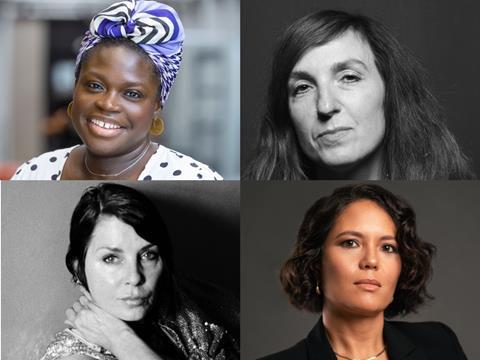
In October 2017, more than 80 women came forward to accuse US producer Harvey Weinstein of sexual harassment and assault. The reverberations of these claims were felt far beyond the confines of the industry and an unprecedented movement was born.
The MeToo hashtag was first used in 2006 by activist Tarana Burke to empower global majority women who had survived sexual abuse. It wasn’t until actor Alyssa Milano and others encouraged women to use the hashtag in 2017, when the Weinstein allegations surfaced, that #MeToo took off on a global scale.
A wave of organisations, policies and mandates have been ushered in, collectively promising to catapult the industry into an era of reform.
Five years on and this week Weinstein has been found guilty of a further three charges involving rape and sexual conduct. He is already serving 23 years in jail after he was convicted of rape and sexual assault at his first trial in New York two years ago. Several other high-profile actors and filmmakers have faced trials relating to similar offences.
But how has life changed for women (and men) working in the film industry? Has it changed at all?
Screen has spoken to UK producers, directors, activists, publicists, agents and executives about their working lives today – on sets, on location, in offices, in meetings, in restaurants, at parties, at festivals – to explore if behaviours have changed for the better, if they feel safer and exactly what more can and needs to be done.
Most contributors were happy to speak on the record but one preferred to talk about several recent experiences on the condition of anonymity – and for fear of a backlash for speaking up.
Maya Amsellem, founder and managing director of WestEnd Films
Today women are at higher levels within companies, particularly the streamers. But at the top, top of companies, it’s still men.
There’s much more confidence today for women to head up companies. I’ve always been in a privileged place, working for my own company and surrounded by women. Today, it’s probably an advantage to be a woman. Every time now you do a film, the entire conversation is around diversity. From when we started our WeLove brand [develops and produces female-specific content] six or seven years ago to now, we get much more projects that fit into that label, produced by women, written or directed by women. It felt very niche when we started.
I hope one day we don’t need to talk about this anymore, and it’s not something special that women occupy the same space or have the same power.
Mia Bays, director of the BFI Film Fund
Our work here isn’t done, not by a long way. Unacceptable behaviours and language are still rife, but they’ve often become more covert. Not everyone feels secure enough in their job, or their potential to secure future employment, to speak up, and therefore sadly not everyone is yet safe at work. We need to keep making that change happen – it is a collective responsibility but one which starts with every single individual.
Getting more women in control is only one part of the answer. It depends so much on what system and environment they were trained and developed in, how/who guided them and what has and hasn’t been internalised that affects how they do and don’t lead. We need more people in positions of responsibility who can design processes and frameworks that support a range of perspectives and skills and create the best possible working environments. The ‘a rising tide will lift all boats’ approach.
We all need to keep self-assessing in order to continue to develop and evolve. It’s all part of health and safety – we need to include the psychological in that, not just the physical. For me, there’s so much work to do around anti-racism and anti-discrimination around gender, sexuality, disability and class.
Aisha Bywaters, casting director
It feels like when you’re speaking to actors, you can have the conversation about what they will and won’t do in a different way from before. There is more of a choice and people are consulted all the way through. On set, directors now have to supply you with a shot list of what they are going to shoot.
I don’t work on anything now that doesn’t have an intimacy co-ordinator. With children filming a first kiss , a 14-year-old child can have the experience [of an intimacy co-ordinator] straight away. Hopefully, in the next few years, it will be definitive for every production. It should be the same as getting a chaperone and a license for a child [on set]. These are things you have to have in place to do your project.
Everyone is a bit more outspoken, and that relates to the #MeToo movement and women and women’s rights, but also what people are and aren’t comfortable with regards to things like race and religion – people are much more open now.
Sarah Brocklehurst, producer and founder of Brock Media
There’s still a lot of work to do to continue to make people feel safe. You can have all sorts of processes in place but you have to trust that the people in charge of those processes are handling them carefully and with the right care and respect. Having trust in those relationships and leadership, and disrupting those patriarchal structures, is vital.
I often have lots of women on my sets now. It really changes the culture, especially when you’re working on stories that are challenging and require vulnerability from your cast and your crew. I believe very passionately that the culture you build on a production creates great work because this is an industry of business that’s based on relationships and people.
The movement has shown that women talk. It’s been about being brave enough to speak up and not be silenced or intimidated. Women talk. We talk, we call each other up before hiring anyone, we share experiences and open up conversations. We draw a lot of strength from those conversations.
Sadie Frost, director, founder of Reel Time Productions and actor
We’ve all done a lot of looking and digging [since 2017]. I’ve been acting since I was a child, and as a young adult in the 1980s, I would often be the only woman on set. In the past five years, there will be a lot of people quivering in their boots about things they’ve done, and it’s good that people are made aware of their behaviour.
When I went to Hollywood [in ths 1990s], I had just had a baby, and I was encouraged by casting directors and agents to behave a certain way that I wasn’t comfortable with. They always complained in America that I didn’t walk in and show off my sexuality – that’s not me. It’s only now that I realise it was completely wrong. I was in a film recently and there was an intimacy coordinator – the number of love scenes I did as a young woman, it was just thrown together, you wouldn’t know if the actor was naked under the sheets. There were a couple of incidents in America where male actors took advantage in the scene. Now, being a director, working with a young actress on my new film Twiggy, it is so important to me to make her feel comfortable.
A lot has happened on set and in production with more women being hired, but in finance it’s still a boys’ club. They want to greenlight a certain kind of film, that give opportunities to men or male subjects – sport-driven docs, whatever that may be.
Melanie Iredale, director of film gender equality charity Birds’ Eye View
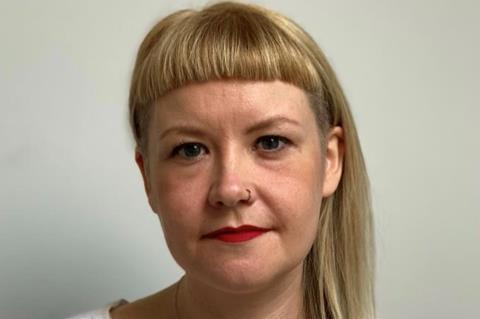
One of the things that certainly needs addressing still is the (mis)use of non-disclosure agreements [NDAs]. She Said felt like a timely reminder of how NDAs have been used to buy silence, and are part of the reason why so much didn’t come to light for so long - they continue to be used to silence survivors and whistleblowers and to protect those who bully, harass, and sexually abuse, which is a wilful misuse of what NDAs are supposed to do.
Five years on, Zelda Perkins, one of the real-life stars of She Said continues to campaign for an end to the misuse of NDAs here in the UK at [campaign] Can’t Buy My Silence.
What feels like a long way off is a shift in working culture. Until we have a more rounded societal understanding of consent and of what fair and compassionate working practices look like, ranging from flexibility through to conduct and everything in between, it feels like there are deeper rooted reasons why these things happen. There is only so much that policies and procedures can do. They help when something has happened, but they are not preventative.
It’s at the grassroots where all the progress is happening. There is so much that bigger institutions that are slow to make change can learn from the grassroots.
There is very slow progress for women filmmakers and women in positions of power, and there’s even further to go when we talk about women of colour, disabled women and LGBTQ women. Black and women of colour directors, for example, made up 4% [of films released in the UK] this year, compared to 2% five years ago.
Laura Pettitt, publicist and founder of Untitled Communications
The dialogue has certainly opened up and that has helped change the attitude of people coming into the industry – they know that they shouldn’t expect or tolerate anything that would make them uncomfortable, which is not necessarily something I felt I knew when I first started out.
But the steps are small and there isn’t necessarily an established framework in place that works for every setting. It’s noticeable on studio/streamer productions that there is awareness around this issue as there is an accountability to the organisation from day one, but I certainly think that the independent space still could do with more official regulation.
In production there is an effort being made to try and look for more female talent for heads of department roles. Unfortunately I think there is a bigger systemic issue with keeping women in senior roles on productions as so many are lost when they have families. Filmmaking and family life are still incredibly at odds when it comes to shoots and the demanding nature of filming discounts so many mothers from being able to continue.
On the flip side it is encouraging to see so many women in senior positions within the studios and streamers. Commissioners like Fiona Lamptey, production execs like Elizabeth Gabler and Eva Yates, having Mia Bays as director of the BFI Film Fund and studio heads like Donna Langley.
So many people have had to go to the media to tell their stories because there aren’t enough places [to report issues]. I have been on a few productions with wellness coordinators, and I know this is now a mandatory role on the BFI’s productions. I’m not sure how effective this has been as it hasn’t been in place long enough – but I’d love to see any results they publish and whether it is having the required impact.
Lucy Price, founder of talent agency Loop Talent
The main thing [that has changed in the past five years] is the understanding of power. My background in the industry is as an AD [assistant director], and I was taught very early on that the department is run like the military. There is a strict hierarchy. I think since the #MeToo movement there has been a massive shift with new roles skewed towards cast and crew, with intimacy co-ordinators and well-being facilitators being the main examples of this. I’ve seen HR companies being used on specific productions. There’s not a future in this industry that exists without those roles.
It feels like in the past, productions have not had the tools or capability to investigate or understand the real effects, and they have been brushed under the carpet, or documented without further consequence. There has been a massive shift since #MeToo. More recently, I have been made aware of situations where production has massively stepped up, and been able to support the crew members in question.
The main vital resource to get support is the Film and TV Charity. They’ve got a 24/7 support line, offering advice and various tools to help crew at all levels navigate the workspace through bullying and harassment in the industry. There have been more external HR companies coming in to deal with specific complaints. It would be interesting to have a more centralised hub for complaints, where proper investigations can happen and behaviour is held accountable. Things have improved, but I do feel like there are still the same old stories that I hear from heads of department.
Vanessa Saal, executive vice president of production and distribution at Upgrade Productions
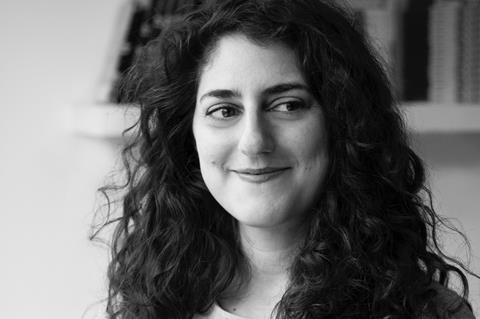
We aren’t accepting anymore of certain behaviours, and the shame used to be on the side of the victim. It’s not that these things don’t happen anymore, but at least there is a general sense that certain things are not acceptable.
There’s a struggle with implicit bias. I’ve been in a position where I’ve been hiring, and I found myself hiring people who were like me. I guess the difference is, I’m not necessarily the kind of person who usually holds power. The people who currently hold the power feel more comfortable with people like them, and then we perpetuate the cycle.
I think gender politics is more progressive in the UK and the US. In France, it was more controversial adopting the idea that certain behaviours weren’t acceptable, but there has been a lot of progress in France as well.
Jen Smith, BFI director of culture and inclusion, and interim CEO of the Independent Standards Authority, an organisation led by Creative UK and Time’s Up UK which aims to tackle bullying and harassment, to launch in 2024
We’ve seen a lot of organisations investing effort and commitment into improving their complaint mechanisms and putting real resource into better processes. The advancement and development of well-being officers and intimacy co-ordinators and more investment in HR are positive steps.
What is really startling is the BBC published a survey at the start of the New York trial against Harvey Weinstein [conducted by Women in Film, Los Angeles, of 174 current and former industry employees], in which 83% of respondents said since 2017 that they felt there was more awareness of the issues and more visibility of the issues. But shockingly, 69% of the same respondents said since 2017, they had still experienced abuse, harassment, or poor behaviour in the workplace. Awareness of the issues have changed, but poor behaviours haven’t.
An Independent Standards Authority for the creative industries is a necessity. There must be a place for people to go to report these issues. Most sectors have a place, in some form. Freelancers are often the least well serviced in the law and are quite exposed. While working on proposals, I’ve spoken to HR specialists on set, and they’ve noticed that Generation Z are most likely to call out issues, whether it’s for themselves or as an active bystander.
Tolu Stedford, producer and co-CEO at Story Compound
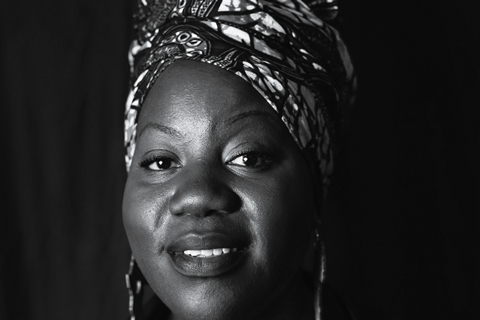
Sometimes I feel with campaigns like #MeToo, as much as it’s great to highlight certain issues, they become a bit fanatic and a lip service thing. I felt the same with Black Lives Matter. These are issues we’ve known for a long time, and suddenly it becomes a time for everyone to feel good about doing something, but how much is actually being done?
Our industry is so underregulated – a lot of us our freelancers. We don’t have HR departments. Where is our industry safe haven? Our industry is led by who you know, who is going to let you in the room. We are still vulnerable to that power dynamic. Instead of just having a movement that is just for a time, we need to think about the solution.
What holds us vulnerable is a lot of our industry meetings happen in restaurants and bars. We often talk ‘over drinks’. It meshes the line between work and personal space and that’s where the issues are rife. The number of evening events where alcohol is present, people’s natural inhibitions start to drop, and that’s where there starts to be a dynamic that changes. Sometimes these incidents are not happening in isolation – they are happening in public. Everyone seems to be having a good time, but how many times are women actually uncomfortable with something that has just been said? We all need to be held accountable for looking out for each other.
Vulnerable people who are still out there trying to get a buck or a dime in the industry don’t understand that resources are out there [for reporting incidents or getting support] and they don’t know where to find them. We’ve got to become savvier about getting into the right spaces and getting to the people who need them most.
Kate Wilson, producer and founder of anti-harassment app for the creative industries, Call It!
I feel quite disappointed by the whole [MeToo] movement. It’s too easy to make it binary, the bad guys are over there, Harvey Weinstein’s in the dock. Weinstein’s on trial for rape, for criminal offences, and that legislation has always existed. What I haven’t seen is real systemic change or cultural change within our industry. I still don’t think people really understand how disruptive exploitative behaviours within Hollywood can be, and how vulnerable young people can be.
It’s too easy for people who benefited from Harvey Weinstein’s exploitative years to say, ‘I had no idea what was going on.’ I lived in LA from 1993 to 2001, I was fully aware of his reputation. I worked in an office that was in the same building as Miramax in the 1990s and I was told not to get in an elevator with him. It’s not a surprise, and he is not alone – far from it. Many people who are in positions of power now turned a blind eye. When the threshold is raping dozens of women, then those who simply are abusing their power, they’re getting away with it. The Call It! app is an opportunity to nudge the dial in terms of workplace culture.
I left LA because of sexual harassment and exploitative practices. I was once not given a film credit that I had absolutely earned. It was an abusive place for me, and I returned to London because of the experience and walked away from the industry for 10 years after that. I retrained as a lawyer so that I could understand my rights, and then sat around politely trying to rebuild my career, which just doesn’t work. Women need to speak out when we see the wrong people getting opportunities and others being exploited and side-lined. Women’s fear of sticking out is used against us, but we should be the squeaky wheel.
Mounia Wissinger head of marketing, distribution and publicity at Protagonist Pictures
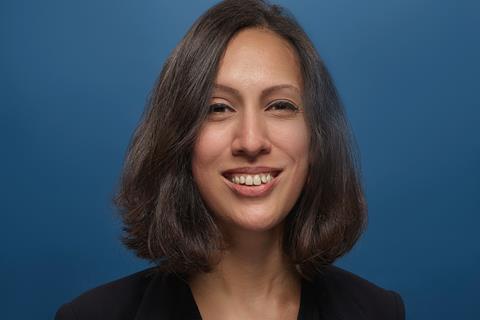
Things that were widely accepted for the past centuries about sex, consent and power dynamics are now no longer accepted. But there is still a very long way to go – we don’t have a lot of proper tools, like legislation, rules on set, rules for companies. It’s still very much ‘best practices’. There is a worry that the momentum will go away, if people get tired about the conversation.
Everyone probably knew about Harvey [Weinstein]. It was no secret. It doesn’t have to go as far as rape to be uncomfortable. Women get subjected to a crass joke, and things like that, and for the longest time, I wasn’t aware that you could push back. As women, we always protected each other – we always knew where the danger was, and where the sleazebag was. To this day, I still have the old mechanisms, such as you don’t send a young assistant to pick up an actor from his hotel room.
What I still hear is a lot of women get labelled as ‘difficult’. We all know what that means. I’m so surprised that it has been five years already since #MeToo, as it still all feels fresh.
Eva Yates, director BBC Film
On the public service side we have a relatively good record backing women writers, directors and producers, but all parts of the industry are now recognising the opportunities presented by centring women’s stories and women creatives. It’s less than a decade since some studios wouldn’t finance female protagonist films as policy – unthinkable now, not least because so many films about and by women are working at the box office.
It’s important not to conflate access in the industry with #MeToo and neither are an issue solely for women. I think the visibility of recent trials, narratives articulating these experiences and the collaborative efforts of the #MeToo and other movements to give people the support to be able to call out their experiences and expect better are all really important, but this work continues. The fact is these things are still happening every day.
I would caution that women in power as part of a ‘solution’ has most impact when those women recognise that some women are more at risk than others, and that we are operating within a systemic or structural framework that so often fails to respond in a satisfactory way when issues arise – power structures are complex and multi-layered and the presence of a woman within one doesn’t guarantee the security of others.
“I know of two women… who were assaulted in their hotel rooms in the last five years”
Anonymous film executive explains why #MeToo must go further
Here we are five years on and it feels like everything and nothing has changed – the sexism, sexual harassment and the abuse suffered has not gone away however there is a greater awareness and a recognition of what sexual harassment is, and a lack of tolerance of abuses of power and impunity in the workplace. The companies and productions I have worked with have anti-bullying and harassment policies. Intimacy coordinators are now commonplace on sets where actors have a say on what they are prepared to do and show and this is put in writing.
What the movement showed is that globally there have been many women and men, like me, who have survived and normalised sexual violence. We have done so to cope, to survive, to continue to live.
I know of two women, both on separate productions, run by different companies, who were assaulted in their hotel rooms in the last five years. They were both left to go to the hospital alone and attend the police station alone. Later, both were told how awful it was that they were attacked but could they keep it to themselves because of the reputational damage it could have on the organisations, the productions, and to their own careers.
I’m not the only one to witness, experience or know of someone, being sexually harassed or assaulted or bullied. It might be sexist or inappropriate sexual comments, comments speculating about someone’s gender or sexuality. I used to freeze, not wanting to make a fuss, but I have learned to speak up. And I see the eye rolls and the looks that say “there she goes again” when I do. You can read the signals. Why else do I choose to write this without revealing who I am?
It is because of the signals and also how it elicits personal, directed micro-aggressions that I write this anonymously and that is the personal backlash. I used to think it was just me until I spoke to other female colleagues. Measured in this too are women who are assertive, feeling like they are more heavily criticised, their work more scrutinised, the feedback they receive or questions they are asked a little more patronising, compared to say those delivered to our male counterparts or those who don’t speak out.
Gaslighting and diminishing of the #MeToo experiences past and present is pervasive in our industry. The conversations I’ve had have often led to men expressing dis-ease, referring to this situation as a witch hunt. There’s also been some women, notably a few years older than me, suggesting men’s flirtiness shouldn’t be taken for predatory behaviour or that the man accused was fine with them.
“We need to go further”
Without a doubt, behaviour that was once accepted and commonplace is no longer tolerated but I think we can go further in smaller ways to safeguard people even when the fatigue has set in.
Simple practices could be putting women on the same hotel floor, or in rooms near each other; providing a dedicated number and contact that will be on hand to assist should any action be required, including and not limited to local embassy details; having someone on the team who is informed about what to do or who to call, including translating for someone in the event of a crime.
We need clearer guidelines. The ones we have are too broad and generic - it is frequently left to the event coordinator, head of department or the indie producer to interpret the law and to manage an allegation and quite simply none of us are HR officials.
Sticking guidelines into the handbook is not enough. No one reads the whole of the handbook, any more than they read the call-sheet except that which relates to their department.
It could become commonplace that at the beginning of a production all heads of department run through these guidelines. This too may be met with the eye roll and argument about not enough prep time to prep.
Organisations financing these productions, markets, and events should insist on this. Few have really given this any thought until there is an incident.
Survivors can not be left to carry the burden of a crime alone – knowing it, living it as a silent shame whispered. Those survivors who do decide to go to court must be assisted through the right channels and not have their claims diminished. If in doubt as to what to do, in all instances the amazing Rape Crisis Centre will direct you.
While these injustices still happen to the individual, regardless of gender, they are global and we as individuals must do our bit to support each other, but individuals in organisations can help too, to insist and enforce these small changes and support each other in how we move forward – if nothing else, don’t roll your eyes.
























No comments yet